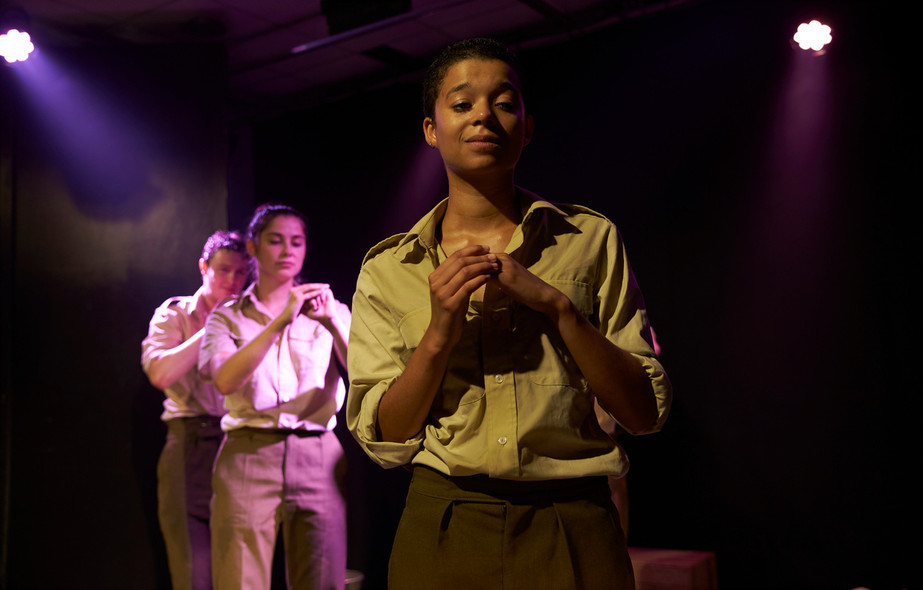
For a play which only survives in fragments I’m happy to report that theatre company, Spies Like Us, is the perfect interpreter. Their style of physical theatre cuts straight to the core of this unfinished piece by an author who never saw any of his work performed and hence had little idea of what was or was not achievable on a stage. Writing in the first part of the nineteenth century he might well have felt constrained by the theatre practice of the day had his work ever reached production during his short lifetime. Woyzeck sits at the source of what we might call ‘modern theatre’ and was to influence succeeding writers including Brecht.
Conceived in the wash from the recent French Revolution which still swirled around Europe (the subject of Buchner’s earlier play, Danton’s Death) Woyzeck is the work of a young man impatient with what he called the ’comedy of monkeys’ of the middle and upper classes. Whilst Büchner dreamed of, ‘the hempen rope and the lamp-post’, the play is not as overtly political a piece of writing as some later writers would go on to produce, yet is clearly a work aimed at raising social awareness if not inciting some kind of political action.
In bringing us this tale about a madman and a whore trapped by the circumstances of their situation, Spies Like Us have developed a language all their own which, for example, owes nothing to cinematic technique in the way it deals with the non-linear treatment of both time and space which the director, Ollie Norton-Smith, handles with a dexterity and clarity which keeps the piece moving forward at a lick for the hour it takes to perform.
Physicality is integral to the show’s effect as, for example, in the compelling image of the whole company (of five) miming the stropping of a razor. Indeed the use of the company to illustrate the internal state of Woyzeck’s mind by various mimes is like having explosive drops of unfamiliar sensations on our theatrical taste buds. The result fills out the lack of psychological depth in the writing: Woyzeck’s memory of the meeting with Marie (Phoebe Campbell), all the fun of the fairground, a compelling stage fight – one of the best I have seen – and the final tableau of bodies floating submerged in the water, all articulate a fluent theatrical language in the service of the collective creative imagination in full spate.
Alex Holley as Woyzeck has a controlled intensity, which pulses at the heart of the show whilst Ms Campbell finds nuance in the conflicting impulses of Marie as she wrestles with the lure of easy excitement and a financial cherry. The whole company can act as well as they move; they are, to coin a phrase, the complete package who have found the secret of spinning pure theatre out of insubstantial air. ★★★★☆ Graham Wyles 31st March 2019

